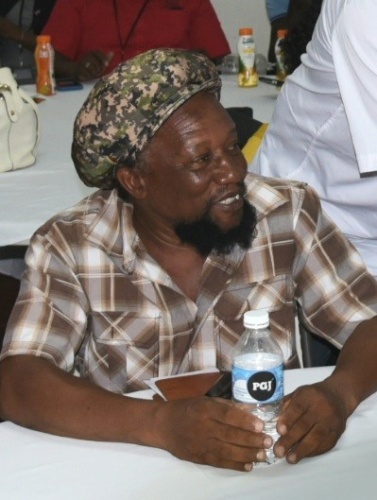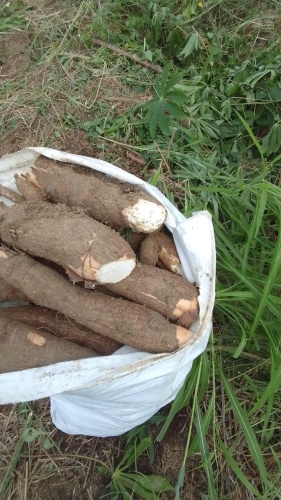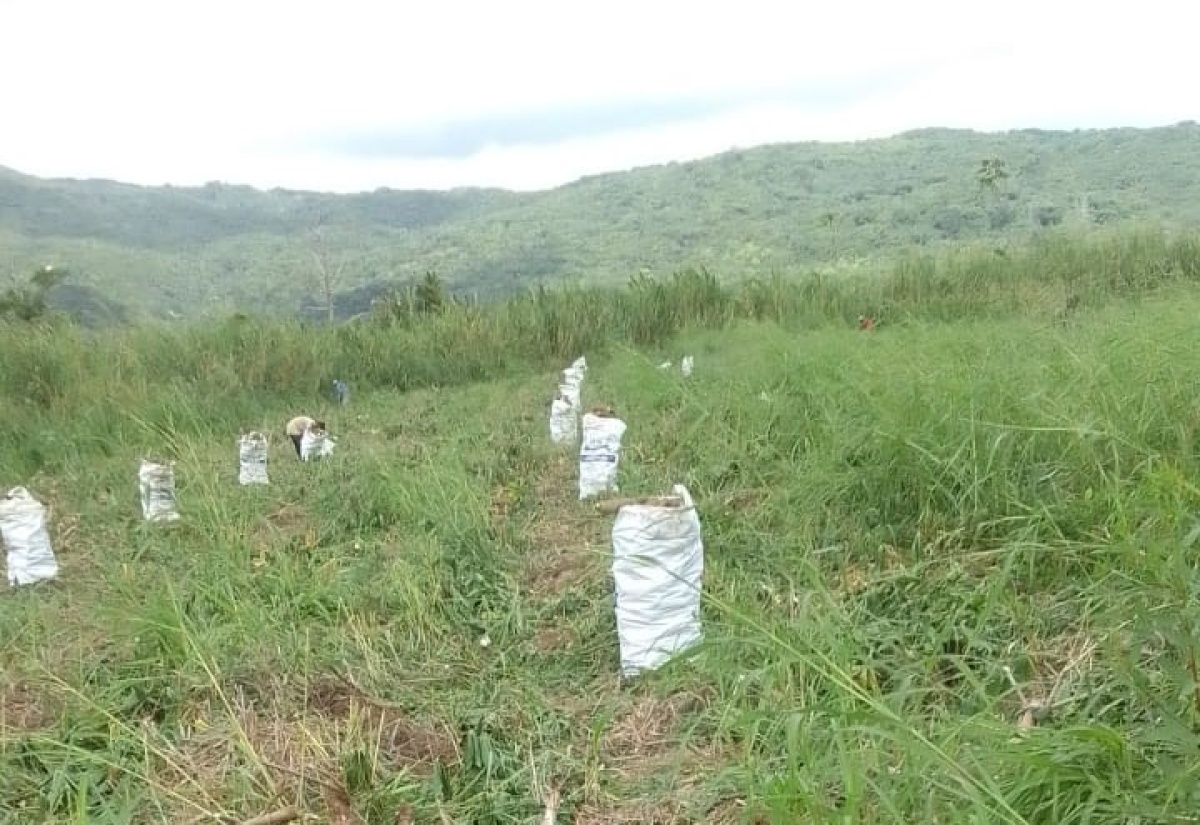Eastern St. Thomas Farmers Seek Fortune in Cassava
By: , January 9, 2024The Full Story
Much like their onion-producing counterparts in the Western end of the parish, farmers in Eastern St. Thomas are looking to make record-breaking strides in the cultivation of cassava.
Nigel Levy, who has a plot in the Plantain Garden River Agro-Park, tells JIS News that the farmers there have turned to cassava as a steady crop that can survive the vagaries of weather and it is proving to be quite rewarding economically.
“Over the years, we always struggle at Christmas time. I used to just centralise my operations around pepper, pumpkin, onions, and for years I struggled; every Christmas I was broke,” he points out.
“I [decided] then to plant some cassava, as it will weather the storm. It is affected [by the weather] but not much. You may lose some, like 10 per cent based on water and some will rot but you can be sure of it. So, we try to implore fellow farmers around us [to plant] based on our experience,” Mr. Levy adds.

Having found fortune in cassava, which is a shrubby root vegetable, the roughly 40 farmers who operate at the 200-acre Plantain Garden River Agro-Park, want to form an association, and acquire former sugar lands to increase acreages of the crop under cultivation.
During the recent Christmas season, more than 50 acres of the crops were being reaped in the area.
For 2024, the farmers are eyeing between 200 and 300 acres of cassava in production within the Plantain Graden River plate.
The aim is to create an industry for the crop in St. Thomas Eastern, similar to the Western communities like Yallahs, which are blazing a trail in onion production.
“Yallahs, right now, is the main producer for onions in the Caribbean, so what we are establishing now is… we are looking at crops that we think can do well, and that’s why we are encouraging and building a cassava industry because we know the crop can do well out here,” Mr. Levy tells JIS News.
Currently, the cassava farmers in Eastern St. Thomas supply large and small exporters with the crop, the bulk of which is used to make chips or bammy.
Some of their buyers include Rainforest Caribbean and Twickenham Industries.

Extension Officer at the Rural Agricultural Development Authority (RADA), Shantel Halliday, tells JIS News that the State agency is fully supportive of the ambitions of the farmers and is helping to drive plans to make cassava King in St. Thomas Eastern.
This includes providing a one-acre land subsidy to the farmers and operational assistance such as ploughing or bedding.
“We are also out there on a daily basis facilitating the farmers in terms of knowledge and in terms of training because there are a lot of new entrants and they don’t really understand the dynamics, so we are facilitating them,” Ms. Halliday explains.
She adds that the RADA team is also linking the farmers to more buyers while making an appeal for additional persons to come on board and “facilitate us in terms of more marketing”.
Ms. Halliday says the Cassava Farmers’ Association is in the pipeline for formation this year.
“They also want to do a crop scheduling, so that persons know exactly when to plant and who is going to harvest,” she adds.
Overall, the Extension Officer is optimistic that the plans to build a cassava industry will be as successful as onion production in Yallahs.
“We can reach there because currently, we have over 120 hectares [288 acres] under production [in the entire Eastern St. Thomas] and persons are still getting involved in cassava production,” she says.
Ms. Halliday points out that there has been some delay in land preparation due to adverse weather late last year. Before these conditions buyers were taking up to 30,000 pounds of cassava daily.
She says that once the weather improves, farmers can continue to look to a not-too-distant future of a lucrative and powerful cassava industry in Eastern St. Thomas.




